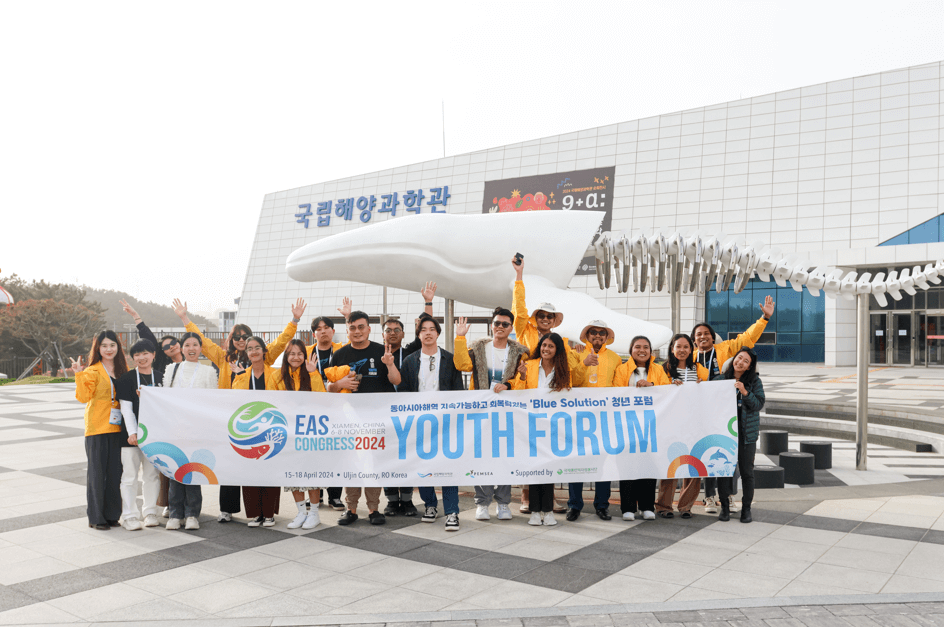Singapore Develops ICM Strategy & Implementation Plan
Monday, 19 July 2010

Singapore — Even as a small island city state, with much of the island less than 15 meters above sea level, Singapore recognizes the benefits of an integrated approach to coastal management and has developed an ICM Strategy and Implementation Plan, along the lines of the Sustainable Development Strategy for the Seas of East Asia (SDS-SEA) Framework developed by PEMSEA. Dr. Amy Khor, Senior Parliamentary Secretary, Ministry of the Environment and Water Resources, Singapore during the Third Ministerial Forum of the East Asian Seas Congress in 2009, related that integrated coastal management (ICM), with its emphasis on the importance of a multi-stakeholder approach to sustainable development, encourages countries to take a more holistic view of marine and coastal issues. The SDS-SEA framework leverages the strengths of various existing agencies in port and maritime management, urban planning, integrated water resource management, biodiversity conservation and environmental management.Singapore's government agencies have worked together to formulate a plan to guide the country's ICM implementation. The plan details the following four actions: conducting a coastal profile; establishing key ICM institutional arrangements; undertaking a review of ICM-relevant legislation and administrative processes; and developing capacity and building up expertise. Singapore has begun the process of undertaking these key actions for ICM implementation.ICM-related activitiesSingapore has only one landfill, the Semakau Landfill, located offshore due to land constraints. The clean landfill thrives with biodiversity, with more than 780 species of plants and animals, including more than 100 rare species. The landfill demonstrates the successful co-existence of proper waste management with a vibrant marine ecological system. The design and efficient operation of the landfill allows thriving mangroves, grasslands, seagrasses, inter-tidal reef flats and coral reefs.Recognizing the importance of marine biodiversity, Singapore established an off-island coral nursery program in 2007, enabling the country to enhance existing marine habitats by helping ensure the survival of existing coral reefs. With this, some 250 species of hard corals, comprising about 32 percent of the world's 800 species, will be well protected. Its objective is to enhance coral reefs using fragments of corals that have already broken off from their parent colonies and are lying on the reef bottoms. The coral nursery rehabilitates these fragments and transplants them back onto coral reefs. Such active but sustainable methods make sense in an urban marine conservation scenario.During the East Asian Seas Congress 2009, Prof. Tommy Koh, Ambassador-At-Large Ministry of Foreign Affairs, Singapore, in his keynote speech delivered by Ambassador A. Selveraja, Singapore, mentioned that "Singapore's advantage has been the fact that our small size has facilitated the close coordination between different agencies in government policymaking. Singapore's agencies have always maintained a high degree of coordination in the management of Singapore's marine environment, despite lacking a formal integrated framework for coastal management."One example is the project to clean up the Singapore River in 1977 to the current Pasir Panjang port development where cooperation and consultation between agencies and stakeholders were vital. The country implements Environmental Monitoring and Management Plans (EMMPs) for all coastal developments. EMMPs provide real time monitoring of and immediate feedback and response to sediment levels that approach environmental tolerance limits. EMMPs allow Singapore to balance coastal development with environmental protection.Prof. Koh adds, "there are other advantages to adapting PEMSEA's framework for Singapore's ICM strategy. Although Singapore has made some strides in integrating our coastal policies and plans, we still have some way to go before achieving a full top-to-bottom integration. The application of a regionally accepted common framework will allow us to better learn from other states and apply solutions based on common experiences



